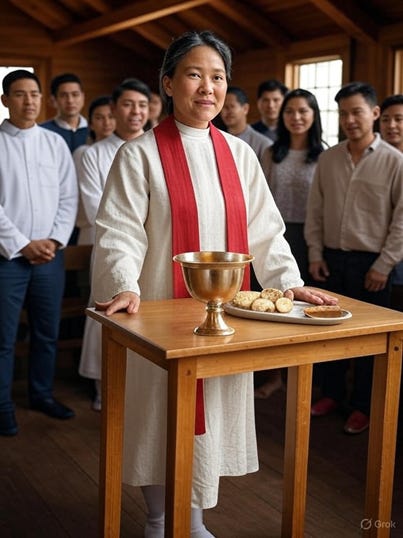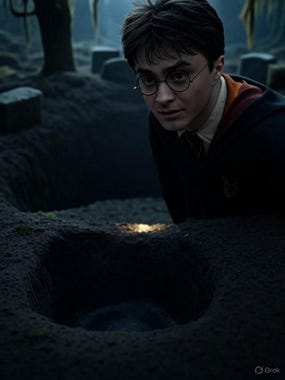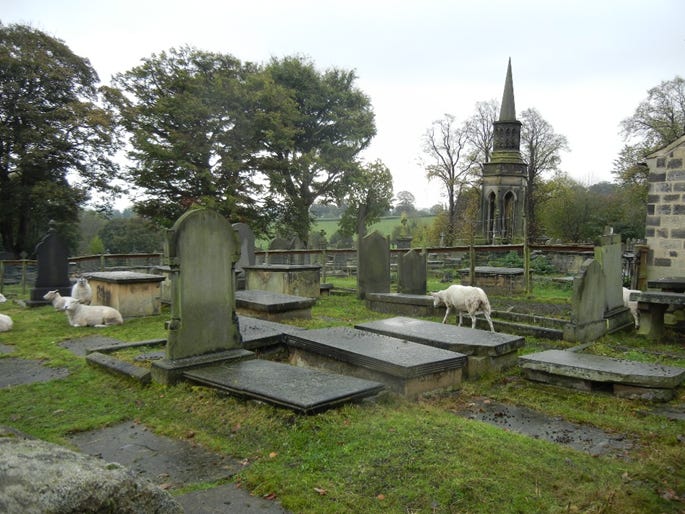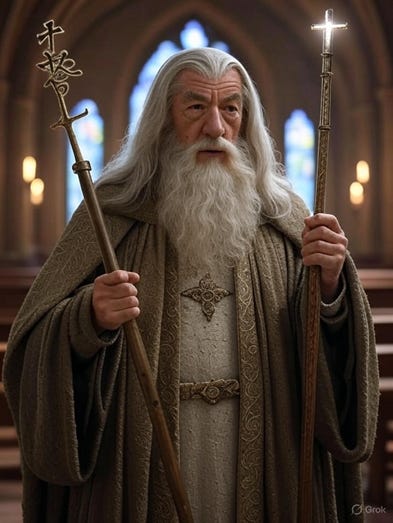Evensong in the Age of Ash
Understand Physical Realities
Accept and Adapt
Live within Gaia
We are finishing up the manuscript of the book Faith in a Changing Climate. I have decided to break the existing Chapter 6 ― The New City of God ― into two new chapters: Chapter 6 ― Response, and Chapter 7 ― A New City of God.
The material presented in those chapters has stressed the objective nature of the crises that we face. However, as we saw in Chapter 6 (and as the frequent parables in this book illustrate), people communicate by telling stories to one another. One advantage of doing so is that a story can force the reader to reimagine his or her world. To reiterate what John Michael Greer said,
Most of what’s kept people in today’s industrial world from coming to grips with the shape and scale of our predicament is the inability to imagine a future that’s actually different from the present . . . one way out of that trap is to learn more stories.
Chapter 7 is actually the beginnings of a fictional story set in a time about 400 years from now. Therefore, we conclude this book by starting to tell a story about a young man named Noah.
Evensong in the Age of Ash
The first light of dawn slips over the ridgeline, spilling across the patchwork of gardens and pasture. In this warmer climate, summers are long and unforgiving, so most work begins before the heat sets in. A single bell from the meeting hall calls the community to prayer.
Inside, forty people stand in a loose circle: men, women, children, and elders. The air smells faintly of earth and woodsmoke. Pastor Mi-Ri dressed in a plain linen robe with a red stole, begins with a psalm of gratitude for the day’s work ahead. In front of her the communion table holds a plastic chalice and a platter of bread. She prays for the strength to meet the tasks before them.
When the prayer ends, the night patrol steps forward. Their leader, Tomas, speaks in the slow, formal cadence used when addressing the elders. “South road… travelers seen. No contact. Watch will follow.” He then said that the strangers seem to have some physical deformities ― maybe they are from the forbidden town of Sanli Dao. Near that town was a nuclear power plant; its ‘swimming pools’ lost their water supply and the waste rods caught fire, spreading radioactivity for hundreds of yīnglǐ (what the ancients called ‘miles’).
Someone whispered, “If those travelers come closer, we’ll need to decide whether to let them through our gate.”
Sometimes strangers who are deformed by radiation or by strange chemicals enter the community for healing. They are treated as lepers were in the old days ― with charity, but at a distance. If they die they are buried in The Potter’s Pit, which is located many furlongs away, in order to keep the land clean.
Tomas slips unconsciously between English and Zhongwen words — a habit so common that few even notice. Generations ago, the warlords’ ancestors arrived from across the Pacific with their armies. Their language mixed with the lost, ancient tongue known to scholars as Spanglish.
Tomas also reports that the east fence, broken yesterday by a falling tree, is now repaired. His patrol had checked the north wall: part of the stockade that rings the settlement, built atop a six-foot earthen rampart. It was meant to keep out wolves; now it keeps out people.
Last week, the neighboring village lost two young men to conscription when Lord Zhao’s riders passed through. Every household here has sworn an oath of loyalty to him, and loyalty means sending fighters when summoned. But few of the fighters return to the village. Loyalty also means paying taxes that they cannot afford, and providing free labor for the Lord’s fields and workshops. The tax collectors are universally hated.
Work teams form quickly. Some head to the upper gardens where drought-resistant barley pushes through dry soil. Others check the rainwater collection tanks, their levels already low this season. Children scatter into the orchard to gather windfall apples before the birds take them. One boy carries a sling, scanning for starlings.
By midmorning, the sun presses heat onto the fields. In the old world ― a mythical time of wonder and plenty called the Bright Years ― people would have worked through noon in something called air-conditioned offices. Evidently these were houses of worship in ancient times.
The teams return to the meeting hall, its thick stone walls cool from the night. The midday meal is simple — flatbread baked at dawn, lentils cooked with garden herbs, sliced apples. Water is poured from ceramic jugs, cool from the cistern. There is no coffee; the beans no longer grow here, and trade beyond the nearby valleys is too dangerous to be regular. The diet does not include much meat, although the community does keep a flock of sheep located in the graveyard of the ruins of the ancient church. (It is rumored that a heathen sect assembled in that church to worship at an altar made of what the ancients called circuit boards.)
After the meal, the hall becomes a place of learning. Apprentices gather at old workbenches where their elders teach them to sharpen tools, splice rope, and set rivets in a wheel rim. Two of the apprentices are preparing for a pilgrimage to the holy site of St. Elvis, the god of music, songs and romance. The church has provided them with ‘money’ in the form of used miniature solar panels.
At another table, Clara, the community healer, shows two young women how to prepare a salve from yarrow and plantain leaves — an antiseptic for wounds in a world without antibiotics.
In the far corner, a monk from the hilltop monastery sits with three children, tracing letters on a tablet. He teaches them to read scripture in the old King James English, though he also uses in Zhongwen characters for the slower students. He teaches from the works of 圣奥古斯丁 (Shèng Àogǔsīdīng / St. Augustine). The monastery sends such teachers once a month — but on tax days, they send men with tally sticks instead. That visit is due next week.
In the early afternoon, the sky darkens without warning. Storms form fast and hit hard. A warm wind stirs the dust, and then a sheet of rain sweeps in from the west. The bell sounds — not for prayer this time, but for storm preparation.
Everyone moves with practiced urgency. Loose items are brought inside; drainage channels are cleared; the grain shed doors are barred. In the orchard, a small team bends young trees away from the wind to keep them from splitting.
By the time the storm passes, the air is heavy and still. A gutter has come loose on the chapel; two people lash it in place. The barley field has lost a few rows to runoff, but the tanks have gained precious water.
Later, in the infirmary room off the hall, Clara tends to Mateo, who cut his hand while repairing a plow handle. The wound is deep; in another era, he would have received stitches and antibiotics. Instead, the injury is cleaned with boiled water, packed with herbal paste, and bound in a linen wrap. Mateo winces but says nothing — infection is feared more than pain. The terrible pestilence that carried away so many of the young people just a generation ago cannot be forgotten.
While she works, the elders meet at the long table. The season has been hot and erratic, yet an early frost is possible. They debate harvesting the squash before it fully ripens — better a smaller yield than losing it to the cold. They also discuss rationing water, especially with the wheat planting due in two weeks. The decision will be announced at evening worship.
At another table, old men talk about the Four Ages:
The Dawn Age: when the gods shaped the world and gave humans abundance.
The Bright Years: when human craft matched the gifts of the gods.
The Time of Smoke: when greed and fire consumed the forests, the seas grew bitter, and humans attached one another with magical weapons.
The Age of Ash: the present, where people endure and wait for renewal.
They wonder if there will ever be another Dawn Age.
One of the men talks about the time when there was no shortage of raw materials such as steel and copper. These materials, and many more, could be extracted from the ruins of mythical Bright Years society. The remains of the strange relics with four wheels called EV-Carts were particularly valuable; indeed many of them had been converted to altars to the gods. But even these sources of materials dwindled ― some of them men called it a time of Peak Ruins.
As the sun sinks, the watch changes shift. Scouts return from a short sweep south, bringing news: the travelers spotted that morning have camped a mile away beyond the ridge. The elders will decide at dawn whether to send an envoy or wait.
Supper is shared in the open air — roasted root vegetables, grain porridge, beans seasoned with wild garlic. Conversation shifts from weather and work to the story of how the hall was built from stone salvaged after the last great flood drowned the city below.
After the meal, the community gathers once more ― this time for evensong. Pastor Mi-Ri reads from Isaiah: “They shall build houses and inhabit them; they shall plant vineyards and eat their fruit.”
Then comes storytelling: old parables, new tales ― some humorous, some solemn.
In one small house, a boy watches moonlight glint on the water tanks. His grandmother tells him how, in her youth, the seasons were different; the summers were cooler, the rains more predictable. He asks if the world will ever be that way again. She does not reply but she reflects on the words of St. Gandalf, the prophet of patience.
The Apostle Frodo:
I wish the Ring had never come to me. I wish none of this had happened.
St. Gandalf:So do all who live to see such times, but that is not for them to decide. All we have to decide is what to do with the time that is given to us.
The grandmother says, “It is never too late to plant a tree.”
In the stillness of the night the New City of God lies quietly in the air; not a paradise free of trouble, but a place where the people understand their limits, adapt with courage, and live in reverence for creation.
As nightfall approaches, a young man named Noah ― a member of the group of unknown travelers that Tomas had observed at the start of the day ― slips away from his companions and enters the town through a crack in the outer fence.







